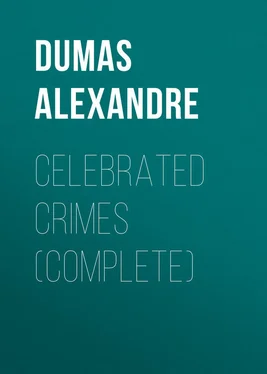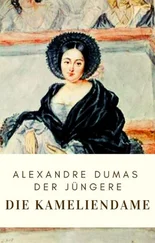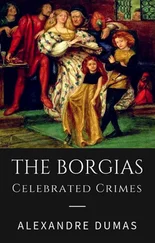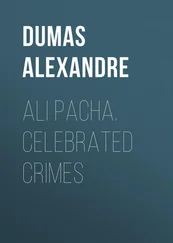Alexandre Dumas - Celebrated Crimes (Complete)
Здесь есть возможность читать онлайн «Alexandre Dumas - Celebrated Crimes (Complete)» — ознакомительный отрывок электронной книги совершенно бесплатно, а после прочтения отрывка купить полную версию. В некоторых случаях можно слушать аудио, скачать через торрент в формате fb2 и присутствует краткое содержание. Жанр: literature_19, foreign_antique, foreign_prose, на английском языке. Описание произведения, (предисловие) а так же отзывы посетителей доступны на портале библиотеки ЛибКат.
- Название:Celebrated Crimes (Complete)
- Автор:
- Жанр:
- Год:неизвестен
- ISBN:нет данных
- Рейтинг книги:3 / 5. Голосов: 1
-
Избранное:Добавить в избранное
- Отзывы:
-
Ваша оценка:
- 60
- 1
- 2
- 3
- 4
- 5
Celebrated Crimes (Complete): краткое содержание, описание и аннотация
Предлагаем к чтению аннотацию, описание, краткое содержание или предисловие (зависит от того, что написал сам автор книги «Celebrated Crimes (Complete)»). Если вы не нашли необходимую информацию о книге — напишите в комментариях, мы постараемся отыскать её.
Celebrated Crimes (Complete) — читать онлайн ознакомительный отрывок
Ниже представлен текст книги, разбитый по страницам. Система сохранения места последней прочитанной страницы, позволяет с удобством читать онлайн бесплатно книгу «Celebrated Crimes (Complete)», без необходимости каждый раз заново искать на чём Вы остановились. Поставьте закладку, и сможете в любой момент перейти на страницу, на которой закончили чтение.
Интервал:
Закладка:
"'The pope made his entry into the Church of the Holy Apostles, and beside him on the marble steps of the pulpit where the canons of St. Peter are wont to chant the Epistle and Gospel, sat Lucrezia his daughter and Sancia his son's wife: round about them, a disgrace to the Church and a public scandal, were grouped a number of other Roman ladies far more fit to dwell in Messalina's city than in St. Peter's.'"
So at Rome and Naples did men slumber while ruin was at hand; so did they waste their time and squander their money in a vain display of pride; and this was going on while the French, thoroughly alive, were busy laying hands upon the torches with which they would presently set Italy on fire.
Indeed, the designs of Charles VIII for conquest were no longer for anybody a matter of doubt. The young king had sent an embassy to the various Italian States, composed of Perrone dei Baschi, Brigonnet, d'Aubigny, and the president of the Provencal Parliament. The mission of this embassy was to demand from the Italian princes their co-operation in recovering the rights of the crown of Naples for the house of Anjou.
The embassy first approached the Venetians, demanding aid and counsel for the king their master. But the Venetians, faithful to their political tradition, which had gained for them the sobriquet of "the Jews of Christendom," replied that they were not in a position to give any aid to the young king, so long as they had to keep ceaselessly on guard against the Turks; that, as to advice, it would be too great a presumption in them to give advice to a prince who was surrounded by such experienced generals and such able ministers.
Perrone dei Baschi, when he found he could get no other answer, next made for Florence. Piero dei Medici received him at a grand council, for he summoned on this occasion not only the seventy, but also the gonfalonieri who had sat for the last thirty-four years in the Signoria. The French ambassador put forward his proposal, that the republic should permit their army to pass through her States, and pledge herself in that case to supply for ready money all the necessary victual and fodder. The magnificent republic replied that if Charles VIII had been marching against the Turks instead of against Ferdinand, she would be only too ready to grant everything he wished; but being bound to the house of Aragon by a treaty, she could not betray her ally by yielding to the demands of the King of France.
The ambassadors next turned their steps to Siena. The poor little republic, terrified by the honour of being considered at all, replied that it was her desire to preserve a strict neutrality, that she was too weak to declare beforehand either for or against such mighty rivals, for she would naturally be obliged to join the stronger party. Furnished with this reply, which had at least the merit of frankness, the French envoys proceeded to Rome, and were conducted into the pope's presence, where they demanded the investiture of the kingdom of Naples for their king.
Alexander VI replied that, as his predecessors had granted this investiture to the house of Aragon, he could not take it away, unless it were first established that the house of Anjou had a better claim than the house that was to be dispossessed. Then he represented to Perrone dei Baschi that, as Naples was a fief of the Holy See, to the pope alone the choice of her sovereign properly belonged, and that in consequence to attack the reigning sovereign was to attack the Church itself.
The result of the embassy, we see, was not very promising for Charles VIII; so he resolved to rely on his ally Ludovico Sforza alone, and to relegate all other questions to the fortunes of war.
A piece of news that reached him about this time strengthened him in this resolution: this was the death of Ferdinand. The old king had caught a severe cold and cough on his return from the hunting field, and in two days he was at his last gasp. On the 25th of January, 1494, he passed away, at the age of seventy, after a thirty-six years' reign, leaving the throne to his elder son, Alfonso, who was immediately chosen as his successor.
Ferdinand never belied his title of "the happy ruler." His death occurred at the very moment when the fortune of his family was changing.
The new king, Alfonso, was not a novice in arms: he had already fought successfully against Florence and Venice, and had driven the Turks out of Otranto; besides, he had the name of being as cunning as his father in the tortuous game of politics so much in vogue at the Italian courts. He did not despair of counting among his allies the very enemy he was at war with when Charles VIII first put forward his pretensions, we mean Bajazet II. So he despatched to Bajazet one of his confidential ministers, Camillo Pandone, to give the Turkish emperor to understand that the expedition to Italy was to the King of France nothing but a blind for approaching the scene of Mahomedan conquests, and that if Charles VIII were once at the Adriatic it would only take him a day or two to get across and attack Macedonia; from there he could easily go by land to Constantinople. Consequently he suggested that Bajazet for the maintenance of their common interests should supply six thousand horse and six thousand infantry; he himself would furnish their pay so long as they were in Italy. It was settled that Pandone should be joined at Tarentum by Giorgia Bucciarda, Alexander VI's envoy, who was commissioned by the pope to engage the Turks to help him against the Christians. But while he was waiting for Bajazet's reply, which might involve a delay of several months, Alfonso requested that a meeting might take place between Piero dei Medici, the pope, and himself, to take counsel together about important affairs. This meeting was arranged at Vicovaro, near Tivoli, and the three interested parties duly met on the appointed day.
The intention of Alfonso, who before leaving Naples had settled the disposition of his naval forces, and given his brother Frederic the command of a fleet that consisted of thirty-six galleys, eighteen large and twelve small vessels, with injunctions to wait at Livorno and keep a watch on the fleet Charles VIII was getting ready at the port of Genoa, was above all things to check with the aid of his allies the progress of operations on land. Without counting the contingent he expected his allies to furnish, he had at his immediate disposal a hundred squadrons of heavy cavalry, twenty men in each, and three thousand bowmen and light horse. He proposed, therefore, to advance at once into Lombardy, to get up a revolution in favour of his nephew Galeazzo, and to drive Ludovico Sforza out of Milan before he could get help from France; so that Charles VIII, at the very time of crossing the Alps, would find an enemy to fight instead of a friend who had promised him a safe passage, men, and money.
This was the scheme of a great politician and a bold commander; but as everybody had came in pursuit of his own interests, regardless of the common this plan was very coldly received by Piero dei Medici, who was afraid lest in the war he should play only the same poor part he had been threatened with in the affair of the embassy; by Alexander VI it was rejected, because he reckoned on employing the troops of Alfonso an his own account. He reminded the King of Naples of one of the conditions of the investiture he had promised him, viz. that he should drive out the Cardinal Giuliano delta Rovere from the town of Ostia, and give up the town to him, according to the stipulation already agreed upon. Besides, the advantages that had accrued to Virginio Orsini, Alexander's favourite, from his embassy to Naples had brought upon him the ill-will of Prospero and Fabrizio Colonna, who owned nearly all the villages round about Rome. Now the pope could not endure to live in the midst of such powerful enemies, and the most important matter was to deliver him from all of them, seeing that it was really of moment that he should be at peace who was the head and soul of the league whereof the others were only the body and limbs.
Читать дальшеИнтервал:
Закладка:
Похожие книги на «Celebrated Crimes (Complete)»
Представляем Вашему вниманию похожие книги на «Celebrated Crimes (Complete)» списком для выбора. Мы отобрали схожую по названию и смыслу литературу в надежде предоставить читателям больше вариантов отыскать новые, интересные, ещё непрочитанные произведения.
Обсуждение, отзывы о книге «Celebrated Crimes (Complete)» и просто собственные мнения читателей. Оставьте ваши комментарии, напишите, что Вы думаете о произведении, его смысле или главных героях. Укажите что конкретно понравилось, а что нет, и почему Вы так считаете.












